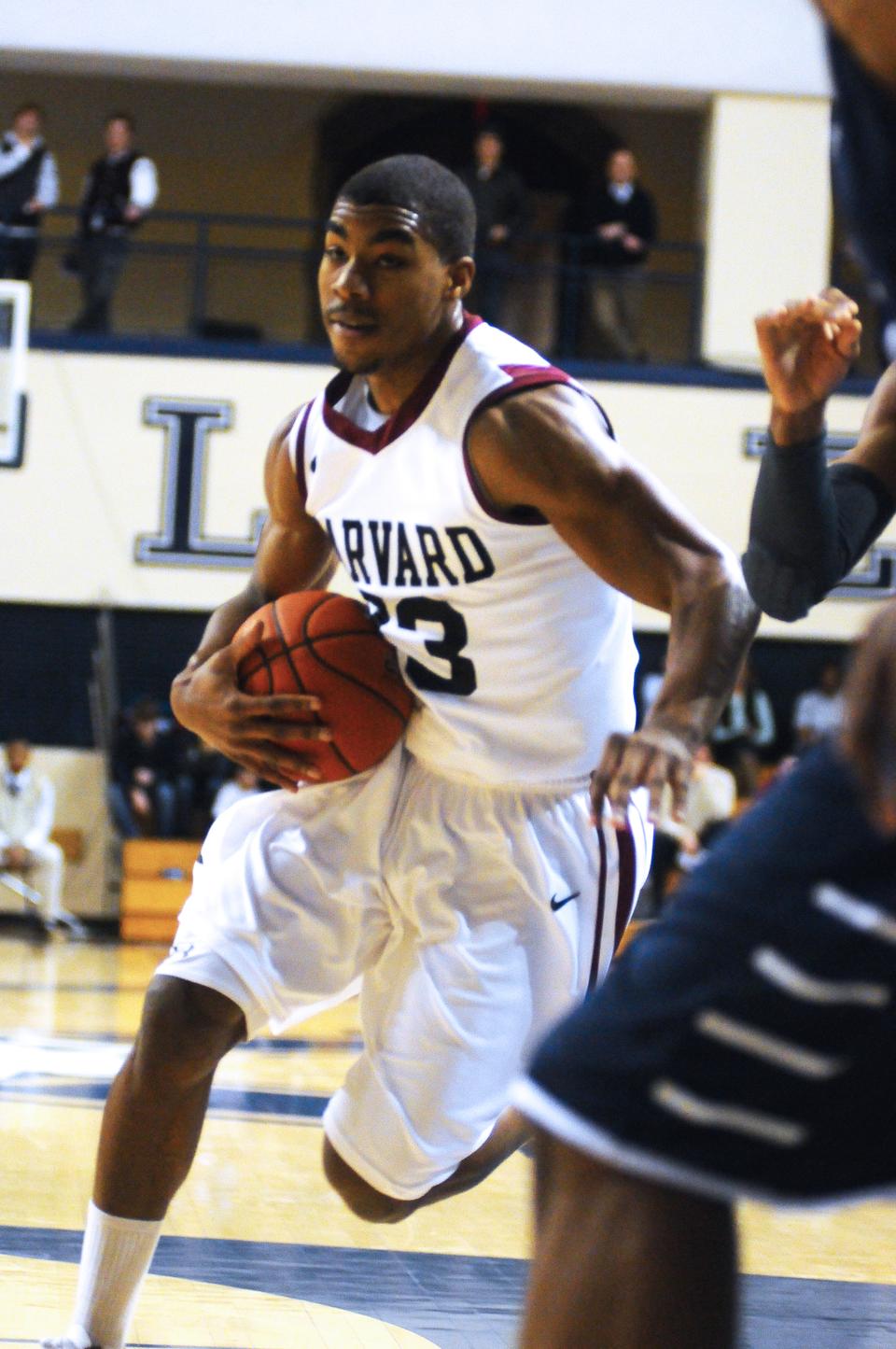
News
Progressive Labor Party Organizes Solidarity March With Harvard Yard Encampment

News
Encampment Protesters Briefly Raise 3 Palestinian Flags Over Harvard Yard

News
Mayor Wu Cancels Harvard Event After Affinity Groups Withdraw Over Emerson Encampment Police Response

News
Harvard Yard To Remain Indefinitely Closed Amid Encampment

News
HUPD Chief Says Harvard Yard Encampment is Peaceful, Defends Students’ Right to Protest
Male Athlete of the Year Runner-Up: Wesley Saunders

Following the departures of the entire 2012 backcourt, the Harvard men’s basketball team needed someone to step up. Oliver McNally had graduated, senior Brandyn Curry had taken a leave of absence, and sophomore Corbin Miller had left on a two-year mission for the Church of Latter Day Saints. The only person left in the rotation was 6’6” sophomore wing Wesley Saunders, who had played fewer than 15 minutes a game in 2011-2012.
Saunders responded to the added responsibility and more than doubled his minutes in leading the team and Ivy League in scoring with 16.2 points per game. With the backcourt rotation decimated by the three departures, he played without a true backup and was on the court more than 37 minutes a game. Saunders spent most of his minutes guarding the opposing team’s best player on defense while being the focal point of the team’s offensive attack on the other end.
“He really did a terrific job this past summer in working hard to get better,” Harvard coach Tommy Amaker said. “He didn’t play a lot [last year], and that was motivating him. He worked really hard, and he was our best player on our [Italy] tour. He knew that, and we told him that, and it really propelled him into the year.”
Amaker said that Saunders’ ability to finish in traffic near the rim, where he used his length to unleash a deadly variety of floaters and reverse layups on opponents, was key for the team. This often isolated the sophomore as the shot clock ran down, allowing him to take his man one-on-one to the rim.
“Wesley has been a huge finisher for the team,” Amaker said after the regular-season ending victory over Cornell. “He’s an incredible finisher, and that’s why he shoots such a high percentage.”
Saunders was consistent in addition to being effective. He scored 10 or more points in each game of the year but the last—where he chipped in five rebounds and five assists to go with his eight points. In the team’s first seven Ivy League games, Saunders averaged 19.4 points as Harvard jumped out to a 6-1 league start. Against Dartmouth on Jan. 26, when the team overcame a 10-point deficit in the closing minutes of regulation, Saunders had 20 points, seven rebounds, six assists, and two blocks.
“The thing that I’ve been pleased with more than anything else is how consistent he has been,” Amaker said. “He has become more than a good practice player. He has had to be our best perimeter defender, one of our best rebounders, and at times I have apologized to him in front of the team for what we ask [of him]. The changes that he and Siyani have brought and what they have done for our program is phenomenal.”
—Staff writer David Freed can be reached at davidfreed@college.harvard.edu. Follow him on Twitter @CrimsonDPFreed.
Want to keep up with breaking news? Subscribe to our email newsletter.
